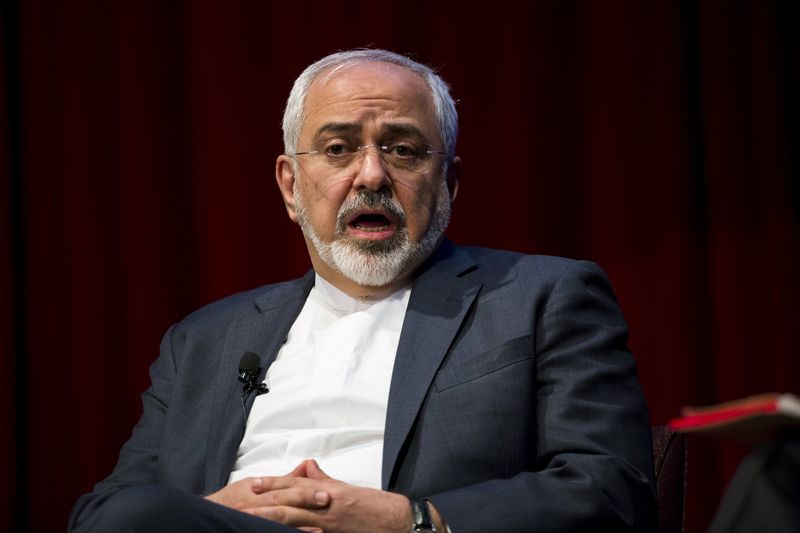By Louis Charbonneau
NEW YORK (Reuters) - Western and Arab demands for the ouster of Syrian President Bashar al-Assad have fuelled years of unnecessary bloodshed as they have prevented negotiations on a political settlement, Iran's foreign minister said on Wednesday.
Iran's top diplomat, Mohammad Javad Zarif, also rejected suggestions that Islamic State militants have been able to attract new recruits because of abuses by Assad's military in the four-year-long civil war.
"People who are accusing the government of Syria, and who are saying the government of Syria has the blood of so many people on its hands should go back and do a bit of soul-searching and tell themselves what prevented a ceasefire in Syria a few years ago," said Zarif, who is in New York for a U.N. meeting on the nuclear Non-Proliferation Treaty.
"The only thing that prevented a ceasefire ... was a precondition" that Assad not be part of any transitional government in Syria, Zarif said at New York University.
European Union foreign policy chief Federica Mogherini on Tuesday said a successful nuclear deal between Tehran and six world powers could open the door to Iran playing a constructive role in resolving regional crises.
Zarif suggested Iran, an ally of Assad's, should be party of any talks on Syria. "Others were trying to exclude Iran, to their own detriment," he said.
A 2012 peace conference involving Syrian government and opposition groups, the United States Russia and United Nations produced the "Geneva Communique," which called for a political transition but left Assad's fate ambiguous.
Iran did not sign on to the communique and was excluded from the January 2014 "Geneva II" meeting. Zarif said outsiders deciding that Assad should not be part of any political process was a mistake.
"You cannot tell (Syrians) that this person should not be a part of your future, the other person should not be a part of your future," he said. "This will prevent a negotiation from taking place."
Western and Arab governments say Assad should be excluded from any transition.

Zarif said Iran was open to "all options," though the peace process should be Syrian-led.